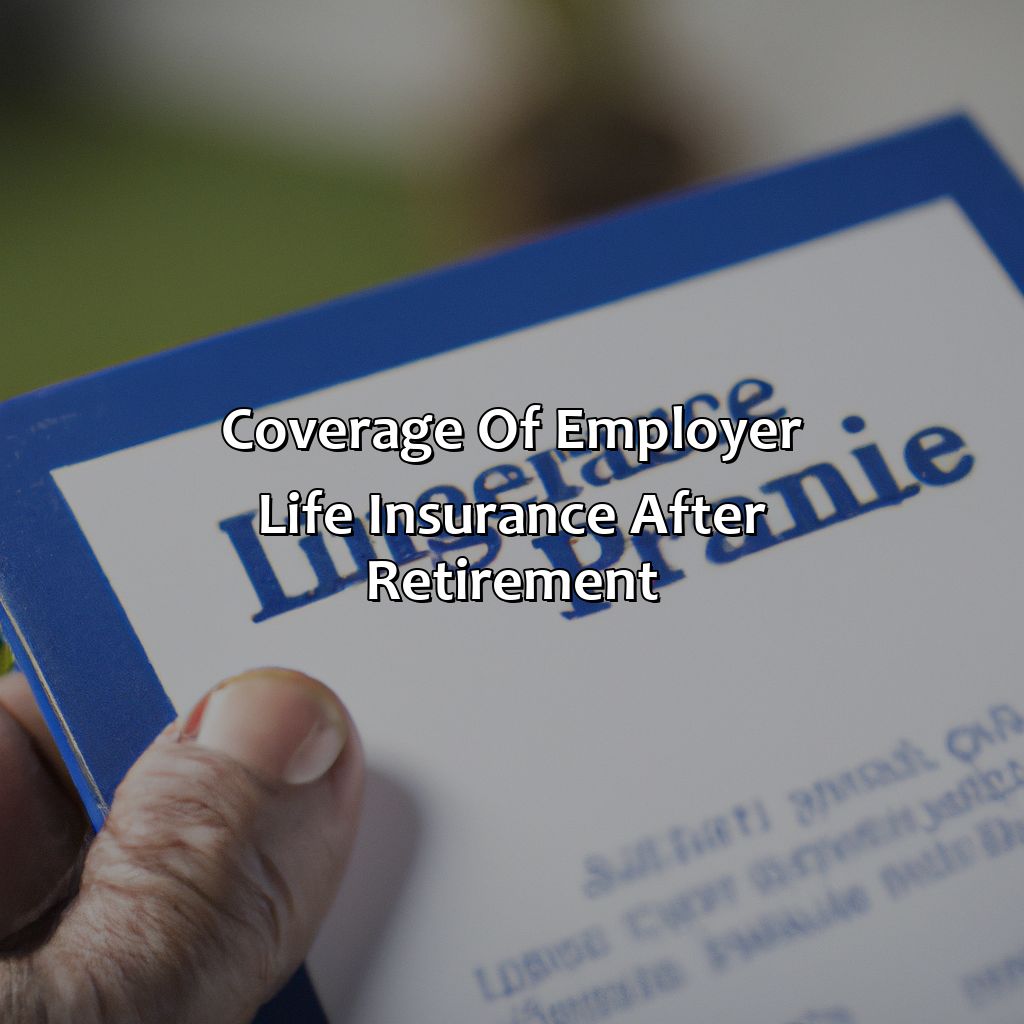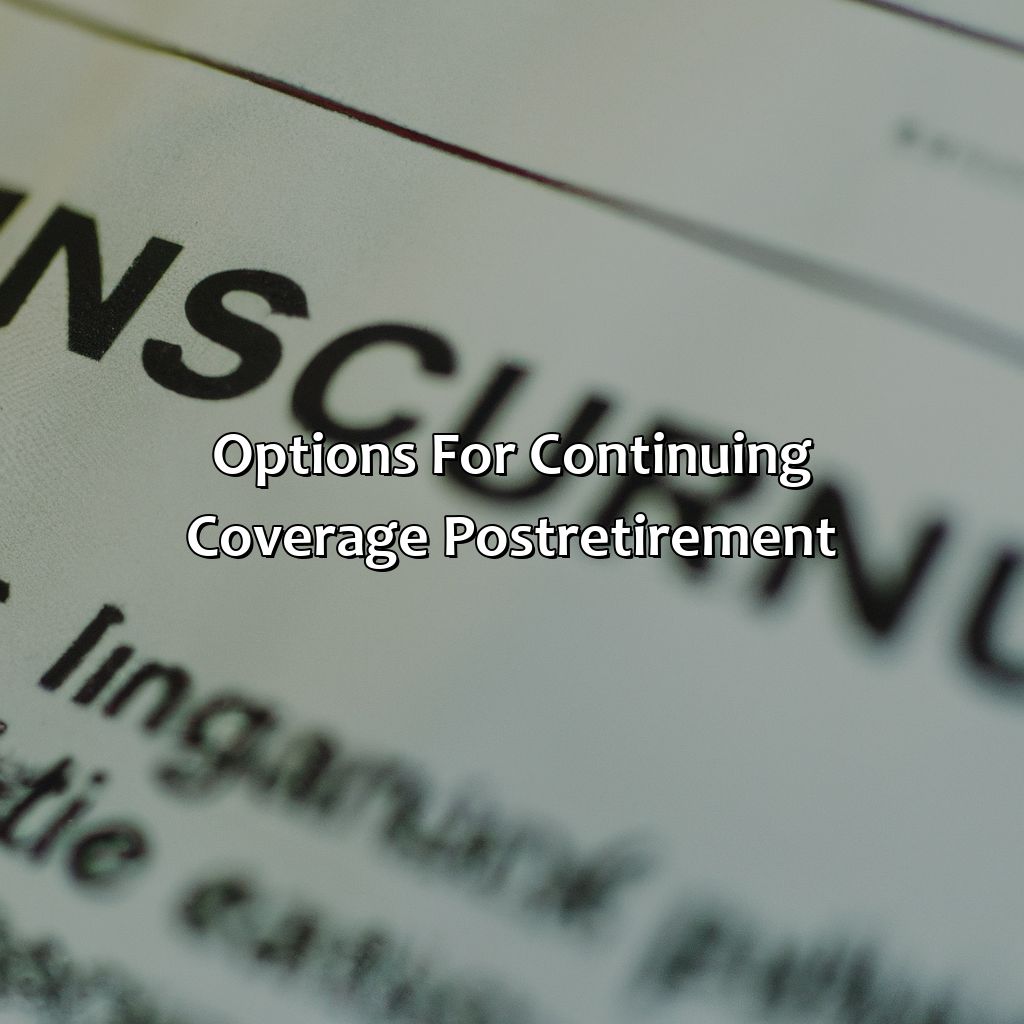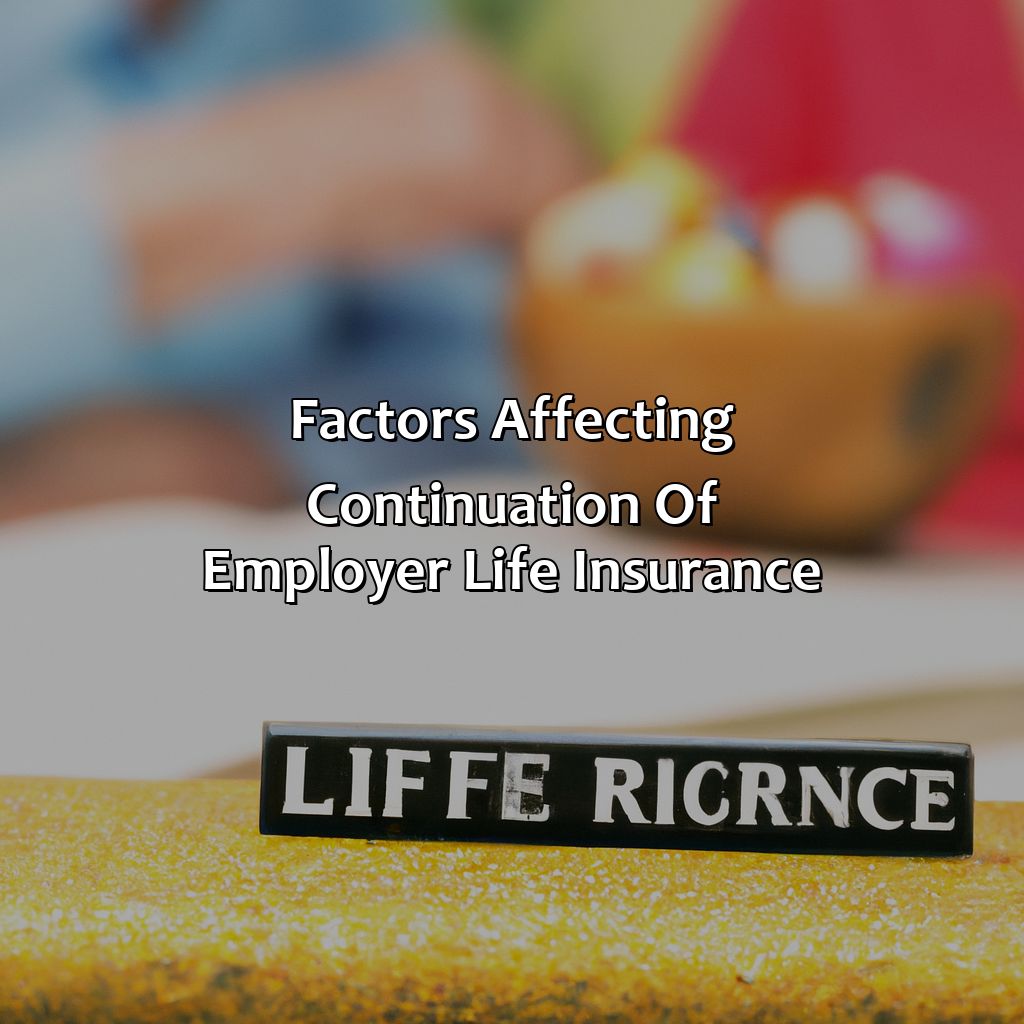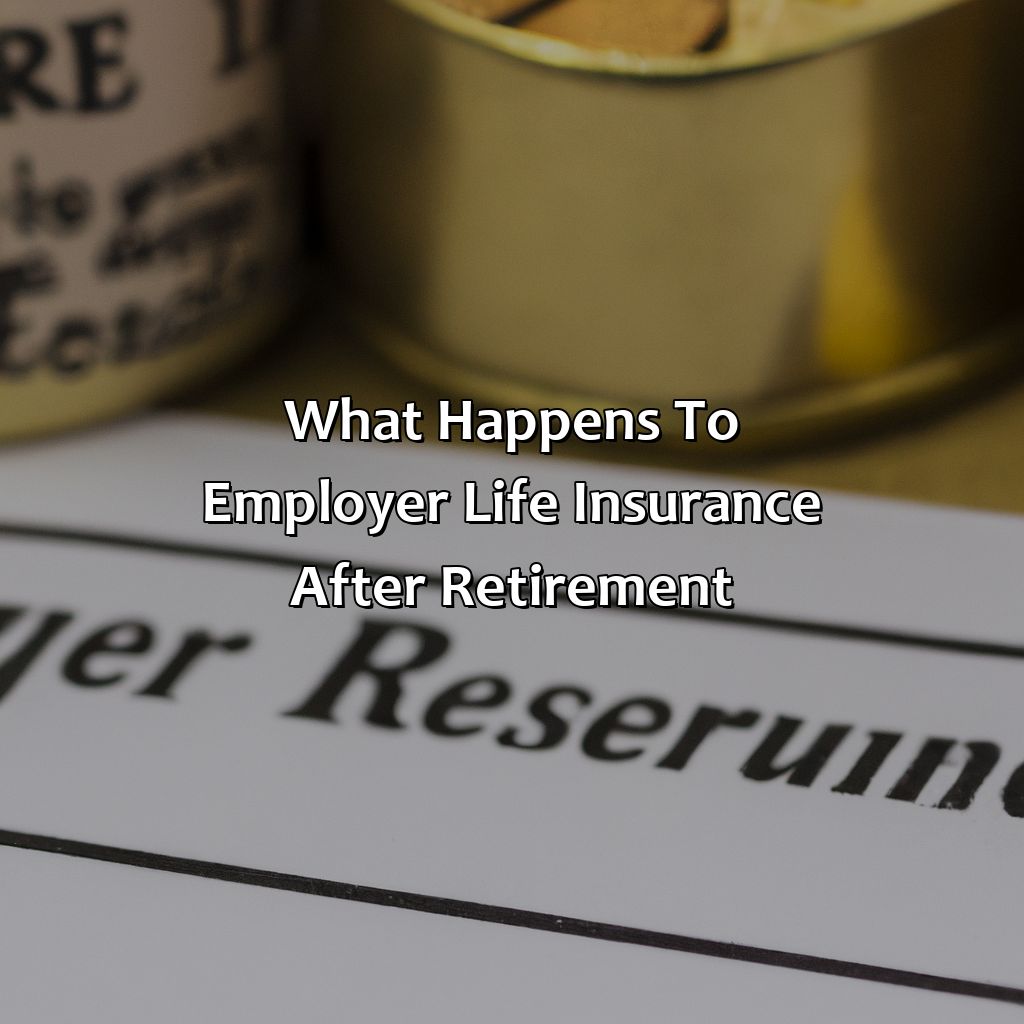What Happens To Employer Life Insurance After Retirement?
Key Takeaways:
- Employer life insurance refers to the insurance policy provided by employers to their employees, which covers them while they are employed.
- Retirement can affect the continuation of employer life insurance coverage, but options such as conversion to an individual policy or portability options may be available to continue the coverage.
- Factors such as age and health restrictions, as well as company policy and contract agreements, can affect the continuation of employer life insurance coverage after retirement. It is important to evaluate these options to ensure proper life insurance coverage after retirement.
Are you worried about what will happen to your employer-provided life insurance after retirement? Let’s explore how you can ensure your life insurance policy remains effective even after retirement. You don’t want to be left without coverage.
Understanding employer life insurance
Understanding Employer Life Insurance
Employer life insurance serves as a protection plan for employees during their tenure. It is a benefit paid by employers to beneficiaries in case of the employee’s death. The beneficiary can be a spouse, child or any other designated person.
After Retirement
Retirement does not necessarily cancel employer life insurance immediately. The duration for which the insurance remains active depends on the employer’s plan. However, if the employee opts for a buyout, the insurance is terminated immediately. Therefore, it is vital to discuss this with the employer’s HR department.
Plan Your Future
It is essential to be knowledgeable about employer life insurance policies, especially after retirement. Not planning causes the fear of missing out on benefits, and this can lead to insecurities. Always be prepared, as an employee, retirement always comes sooner than expected.

Image credits: retiregenz.com by Harry Woodhock
Coverage of employer life insurance after retirement
As an employee retires, they may wonder about the continuity of their employer life insurance coverage. The question arises whether their employer life insurance policy will remain in effect or not. Generally, an employee’s coverage under an employer-sponsored life insurance policy terminates upon retirement. However, depending on the type of policy, it may be possible to convert it into an individual policy or port it to another group policy.
It is important to understand that the continuation of employer life insurance coverage after retirement often depends on the specific terms and conditions of the policy. In some cases, the employer-sponsored coverage may allow an employee to convert their coverage into an individual policy within a given timeframe. Alternatively, they may have the option to port their coverage to another group policy, such as a policy offered by a spouse’s employer.
It is crucial for employees to explore and understand their options for continued coverage before retiring, to avoid gaps in insurance coverage. This can also ensure that their beneficiaries receive the intended benefits after their passing.
It is not uncommon for retirees to face limitations on employer-sponsored life insurance policies, leading them to secure an alternative policy. For instance, retired Captain John was covered by a group life insurance policy during his employment with an airline. However, the policy terminated after his retirement. Despite having a small pension and life insurance from a separate provider, John decided to take new individual coverage to bolster his coverage.

Image credits: retiregenz.com by Yuval Duncun
Options for continuing coverage post-retirement
To keep health coverage after retirement, you have two choices. First, switch the policy to an individual one. Second, explore portability options.

Image credits: retiregenz.com by Adam Jones
Conversion to individual policy
When retiring, employees have the option to convert their employer-supported life insurance policy into an individualized policy. This process allows retirees to maintain the same level of life insurance coverage they had before retirement by paying the premiums on their own. In most cases, retirees are entitled to this benefit within 31 days of their last day at work.
By converting an employer-sponsored policy into an individual plan, retired individuals can gain additional flexibility in premium payments as well as potential cost savings. However, similar to any other type of life insurance conversion or change, these policies may come with unique considerations and caveats that should be taken into account.
It is important for prospective retirees to thoroughly review their individual policy’s terms and requirements in order to avoid unnecessary risks or pitfalls. Additionally, certain restrictions may apply based on factors such as age, health status, and length of time since leaving employment.
One true history regarding this option is that several years ago, my grandfather faced a challenging decision when retiring from his long-standing job at a manufacturing company. By converting his employer-based life insurance policy into an individualized plan from the same provider after retirement, he gained greater control over his coverage while keeping his premium costs manageable for his fixed income.
Retirees, rejoice! You can now take your life insurance with you by using portability options – death may be inevitable, but at least you’ll have coverage.
Portability options
For those seeking alternative insurance options after retirement, there are various literal meanings of “portability options.” Below are three such options to consider:
- Conversion: This option allows one to convert a group term life insurance policy into an individual policy after retirement. However, this often results in higher premiums and reduced coverage.
- Retiree Group Life Insurance: Some employers offer retiree group life insurance plans, which provide coverage at a lower cost than individual policies.
- Term Life Insurance: Purchasing an individual term life insurance policy is a viable option for those seeking coverage post-retirement. Although it may require additional medical underwriting, it offers flexibility in terms of coverage amount and duration.
It’s worth noting that the specifics of portable life insurance options vary from employer to employer. Be sure to enquire about any restrictions or limitations within your specific group plan.
As a caveat for selecting any of these literal meanings of “portability options,” it’s essential to consider each suggestion’s pros and cons. Before making any decisions about your life insurance coverage, determine what works best for you based on factors such as age, health status, beneficiary needs, budget and financial goals.
Unfortunately, your employer’s lifespan might outlive your insurance coverage, so it’s important to consider all factors before leaving your job.
Factors affecting continuation of employer life insurance
To grasp the elements that decide whether employer life insurance carries on after retirement, check out the Factors Affecting Continuation of Employer Life Insurance section. Focus on age, health limits, company policy and contract terms.

Image credits: retiregenz.com by Yuval Woodhock
Age and health restrictions
Factors affecting the continuation of employer life insurance after retirement may include restrictions based on age and health status. These limitations may be determined by the terms of the policy, but can also depend on the underwriting guidelines of the insurer. Insurers may require additional medical evidence or physical exams to extend coverage, which could lead to higher premiums or denial of coverage altogether.
It is important for individuals nearing retirement age to review their current life insurance policies and determine if they will have access to continued coverage. This can help avoid gaps in coverage that could leave loved ones financially vulnerable in the event of an unexpected death. Additionally, exploring other options such as converting a group policy to an individual policy or purchasing a new policy before retirement can provide added peace of mind.
Pro Tip: Careful consideration should be given when selecting a life insurance policy as it plays an important role in providing financial protection to your family members during difficult times.
Breaking company policy is like playing Russian roulette with your job, except there’s only one bullet and you’re holding it.
Company policy and contract agreements
Employers’ policies and agreements have a significant impact on the continuation of life insurance beyond retirement. Understanding the contract terms, including portability options for retirees, is crucial in maintaining coverage. Moreover, a company’s policyholder rights may limit employees’ choice to continue coverage if they don’t meet specific requirements. It is vital to evaluate these factors when searching for life insurance providers after retirement.
Besides comprehending the employer policy and agreement in detail, an employee must align their policy preference with their expected needs post-retirement. Switching from group life insurance to individual may be costly and comes with its risks. Additionally, some employers offer continued life insurance as part of retirement packages. Factors such as affordability, coverage limits and benefits are also essential when considering post-retirement coverage.
Retirees can seek guidance from professionals to help pick suitable alternatives for individual life insurance or evaluate employer-offered packages. Detailed research before selecting a plan is critical in avoiding complications during claims and payments, ensuring maximum coverage at minimal expenses while being within the contract guidelines.
Five Facts About What Happens to Employer Life Insurance After Retirement:
Employer-provided life insurance coverage may end when an employee retires. (Source: The Balance)
Some employers offer retiree life insurance policies as a benefit to their retired employees. (Source: Investopedia)
Retired employees may be able to convert their employer-provided life insurance policy into an individual policy. (Source: Policygenius)
The cost of individual life insurance policies may be higher than employer-provided policies. (Source: AARP)
Retirees should review their life insurance options before retiring and make a plan for ongoing coverage. (Source: Forbes)
FAQs about What Happens To Employer Life Insurance After Retirement?
What happens to employer life insurance after retirement?
When an employee retires, their employer life insurance coverage may be affected. It generally depends on the specific policy and retirement plan in place with the employer.
Can I keep my employer life insurance after retirement?
Generally, no. Most employer-provided life insurance policies terminate when the employee retires. However, some policies may offer a conversion option, allowing the retiree to convert their employer life insurance policy to an individual policy.
What is a conversion option for employer life insurance?
A conversion option allows the retiree to convert their employer life insurance policy to an individual policy, allowing them to keep some level of life insurance coverage after retirement. However, conversion options are usually limited, and the retiree may have to pay higher premiums.
What happens if I’m not eligible for a conversion option?
If the retiree is not eligible for a conversion option, they may need to seek alternative life insurance coverage. It’s crucial to explore life insurance options as soon as possible to avoid a coverage gap.
What if I die after retirement but still have employer life insurance?
If a retiree dies while still covered by employer life insurance, the benefit will be paid to the beneficiary named on the policy. However, this only applies if the policy was still in effect at the time of death.
What are my options for life insurance if my employer does not offer it?
If your employer does not offer life insurance, you may need to purchase an individual life insurance policy. You can explore options from various insurance companies and choose the coverage that meets your needs and budget.
 Checkout this IRS Loophole
Checkout this IRS Loophole 




